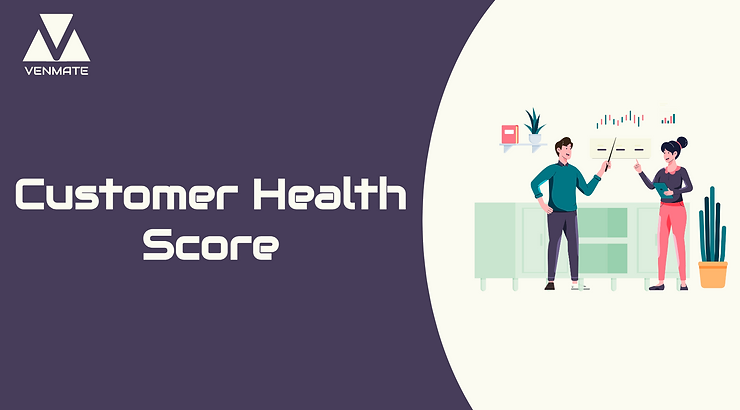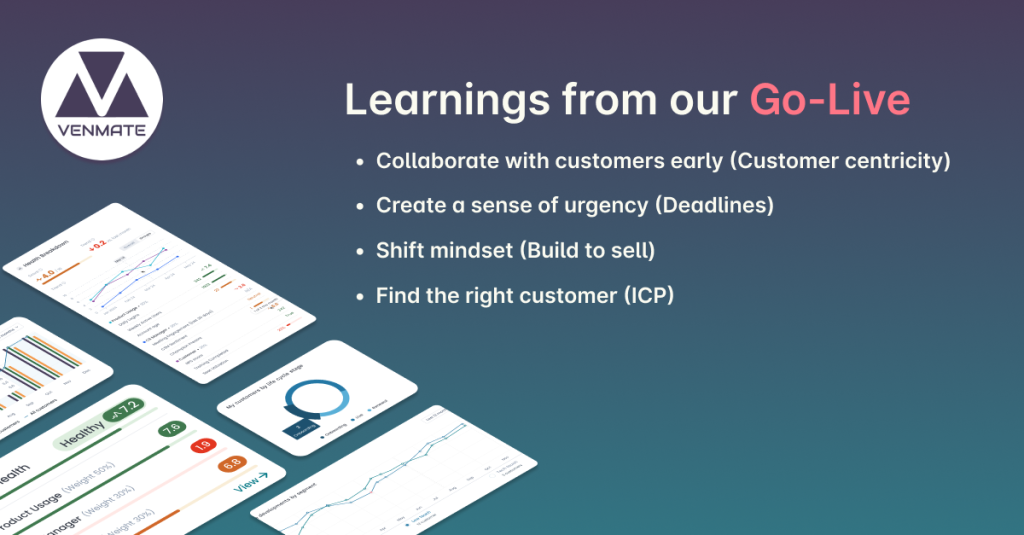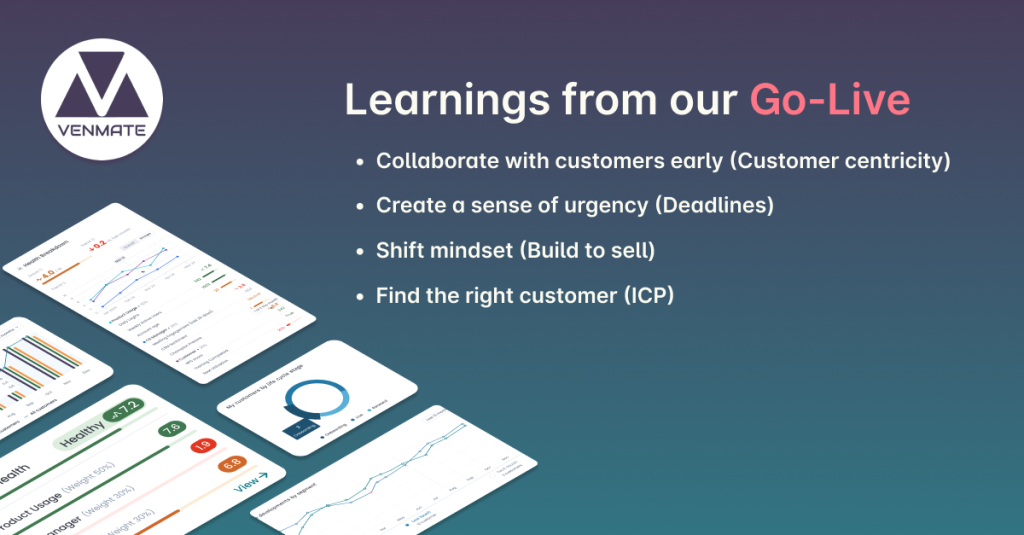In the fast-paced realm of B2B SaaS, the importance of maintaining strong, enduring customer relationships cannot be overstated. One critical tool that aids businesses in achieving this is the Customer Health Score. This metric provides a clear, quantifiable measure of a customer’s engagement and satisfaction, guiding SaaS providers in proactive customer success management. At VENMATE, we enable a tailored approach, customizing your health score to reflect unique business model and needs.
Why is the Customer Health Score important?
A well-defined Customer Health Score offers several benefits:
- Predictive insights: It serves as an early warning system, identifying at-risk accounts before they churn.
- Enhanced customer engagement: By understanding which aspects of your service resonate with customers, you can tailor your interactions and offerings.
- Resource allocation: It helps you prioritize where to allocate resources for maximum impact, ensuring you address the right issues at the right time.
- Customer lifecycle management: It aids in mapping out the customer journey, allowing you to enhance touchpoints and improve overall satisfaction.
How to calculate the Customer Health Score
The most effective Customer Health Scores are multidimensional, incorporating various metrics over time that reflect our specific business model. Here’s how we approach it:
- Product usage: This includes tailored metrics such as frequency of logins, feature adoption, and usage intensity. High engagement levels typically indicate a healthy customer who sees value in your solution. However the exact measurement of those metrics has to be customized based on the business model.
- Customer Success Manager (CSM) perception: This qualitative measure captures nuances that pure data might miss, such as the customer’s strategic priorities and potential concerns. The intuition and gut feeling of a customer success manager who is in regular interactions with the customer should not be overlooked.
- Customer sentiment: This is gauged through direct feedback mechanisms like NPS (Net Promoter Score), CSAT (Customer Satisfaction Score), surveys, and sentiment analysis from customer interactions. Positive sentiment is a strong indicator of customer health.
Customizing your Health Score
It’s crucial to adapt the Customer Health Score to your company’s specific needs. Factors like business size, industry sector, customer segment, and product type can influence what metrics are most relevant. For instance, a company serving large enterprises might weigh contract value and renewal likelihood more heavily, while a startup might focus more on user growth and engagement. Companies serving high-touch customers should value a lot of customer interactions while a tech-touch strategy relies on automating customer success processes. Therefore the calculation of the health score has to be customized to your individual business specifications to capture the right signals.
To customize your score:
- Identify key metrics: Start by determining which aspects of your product and service are most critical to your customers’ success.
- Weight accordingly: Not all metrics are equally important. Assign weights to each metric based on their significance to your overall business goals.
- Regular review: Customer needs and market conditions evolve. Regularly revisit your Customer Health Score model to ensure it remains relevant and accurate.
Using the Customer Health Score
Once you have a robust scoring system, it’s time to put it to use:
- Intervene proactively: Use the score to identify accounts that need attention, allowing you to intervene before issues escalate.
- Customize communications: Tailor your outreach and support based on the health score, providing more personalized customer experiences.
- Measure impact: Track how changes in the health score correlate with customer outcomes like renewal rates, upsells, and overall satisfaction.
In conclusion, the Customer Health Score is not just a metric—it’s a comprehensive strategy that empowers B2B SaaS providers to forge stronger, more resilient customer relationships. By customizing and effectively utilizing this score, you can ensure to not only meet but exceed customer expectations, fostering growth and success in a competitive landscape.
Also check out how we at VENMATE calculate our the customer health score ->








